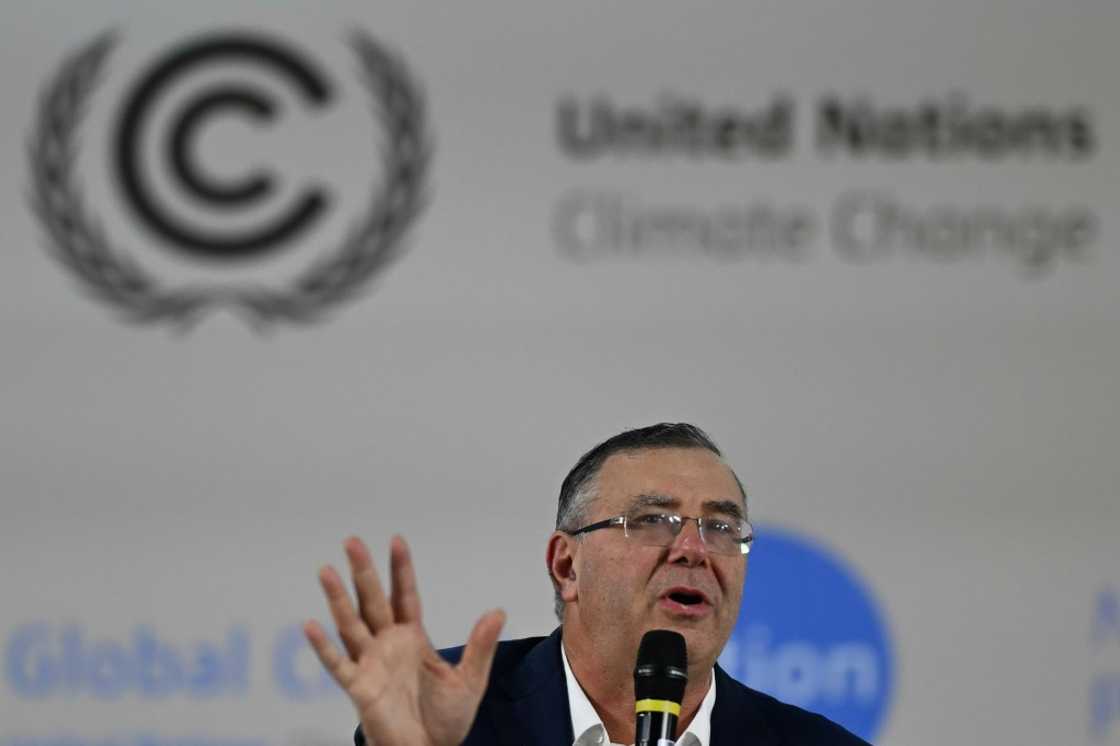
A Controversial Presence at COP30
At the 30th Conference of the Parties (COP30) in Brazil, one of the few oil executives to attend was Patrick Pouyanne, the CEO of France’s TotalEnergies. His presence sparked a direct confrontation with activists, as he defended his role and avoided addressing the fossil fuel industry’s contribution to global warming.
After delivering a speech during a panel discussion on climate change in Belém, Pouyanne faced questions from a Greenpeace activist about the responsibility of the fossil fuel industry in compensating for the damage caused by extreme weather events. In response, Pouyanne stated, “There have been cyclones in the Caribbean for decades.” When told that these events were “accelerating,” he replied, “I am not a scientist.”
Pouyanne further clarified his stance when asked by AFP about scientific evidence showing hurricanes are becoming more intense. “I am not a meteorologist,” he said. “I simply observe that, unfortunately, there were (cyclones), there are still (cyclones), and there will be more.”
The Intergovernmental Panel on Climate Change (IPCC), which assesses climate science under the UN, has concluded that while climate change is not expected to increase the total number of tropical cyclones, it does predict a rise in the frequency of more intense storms. Emissions from burning fossil fuels—oil, gas, and coal—are the primary drivers of this phenomenon.
Dialogue or Disengagement?
Pouyanne participated in an event focused on decarbonizing the oil and gas industry. Alongside him, executives from the Brazilian state-owned energy company Petrobras and a government official also spoke. However, the conference faced some disruptions, including the cancellation of a planned appearance by the head of COP30, Brazilian diplomat Andre Correa do Lago, who chose to engage with Indigenous protesters blocking the main access to the conference center.
Greenpeace highlighted a report from non-governmental organizations (NGOs) that criticized the significant presence of fossil fuel lobbyists at COP30. According to Kick Big Polluters Out (KBPO), a total of 1,602 delegates with ties to the oil, gas, and coal sectors attended the event, representing approximately one in 25 participants.
Pouyanne denied being a lobbyist, stating, “I am not a lobbyist at all. … You are very wrong.” He explained that he had been invited to the event and believed in dialogue. “I don’t think we will make progress on climate through exclusion because otherwise what will happen? We will stay in our corner, we’ll make our oil and that’s it?”
Skepticism About Fossil Fuel Phase-Out
Pouyanne expressed doubt about the feasibility of creating a roadmap for phasing out fossil fuels, an initiative supported by some countries, including France. “It’s a European vision, organized by governments. Perhaps we should also trust the stakeholders who are investing,” he said. He argued that relying solely on regulation would not lead to success, stating, “We’re starting to realize that won’t work.”
His comments reflect a broader debate at COP30, where the role of the fossil fuel industry in addressing climate change remains a contentious issue. While some argue for stricter regulations and a rapid transition to renewable energy, others like Pouyanne advocate for continued investment and dialogue within the sector.
As discussions continue, the challenge remains to find a balance between economic interests and the urgent need for climate action. The presence of figures like Pouyanne at such high-profile events underscores the complex dynamics at play in the global effort to combat climate change.
